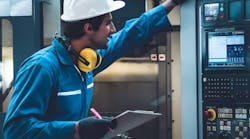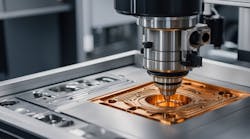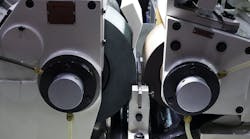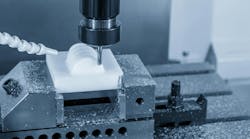Increases in precision are inevitable, and manufacturing must keep stride with them, but what will it take?
Dr. David Dornfeld, of the department of mechanical engineering at the University of California at Berkeley, said he expects that there will be a need for greater focus on metrology — how you measure and how you interpret data is critical. The manufacturing world has to also address problems with terminology and concepts to move forward.
In addition, machine tool accuracy and the management of potential errors that come from thermal shifts and vibration must be considered. Therefore, controlling the work environment will continue to be very important.
A lot of sensors and software that compile and analyze sensor data using model algorithms will control machine tools of the future. And, while there’s room for scaled-down processes using traditional machines in applications for meso-scale and MEMS devices, future machines most likely will require new processes that will use technologies borrowed from grinding and machining.
Trends show a growing demand for higher precision for consumer goods, and the history of work in the electronics industry can offer clues to future directions.





